- Home
- Isaac Hooke
Test of Mettle (A Captain's Crucible Book 2) Page 9
Test of Mettle (A Captain's Crucible Book 2) Read online
Page 9
“They don’t,” Miko agreed. “But maybe they can launch them another way.”
“Or these fighters were launched by a capital ship we’re not currently seeing,” Lewis said.
Jonathan stared at the dots representing the enemy fighters on his tactical display. Those malevolent red indicators hadn’t moved from their positions since the fleet stopped.
“Wait a second,” Robert said. “If this is the same prison ship from Vega 951, isn’t it possible it assumed control of some of the fighters when it fled? And it drew them through 2-Vega with it?”
“Anything’s possible at this point,” Jonathan agreed. He rubbed his chin. “I don’t know what to believe anymore.”
thirteen
Bridgette sat in the passenger seat of the shuttle and through the main window she watched the dagger-shaped alien ship grow bigger above the greenhouse planet.
Her captor, Barrick, had elected to get under way without changing into a spacesuit first, requiring the Dragonfly to maintain an atmosphere. The air felt dry, stale, and it irritated her throat. And while shuttles were equipped with inertial compensators, there was no artificial gravity. That stomach-churning feeling of zero-G made her feel like she was constantly about to sick up. Her morning sickness didn’t help matters. Nor did the circumstances that had brought her to the current situation.
Barrick piloted the shuttle in the seat beside her.
She had attempted to talk to him once they were under way. She’d asked questions such as “why are you doing this” and “what do you want,” but he had refused to say a word to her, let alone project any thoughts into her mind.
The fact that her wrists were secured to the armrests spoke volumes to her about the telepath’s current psychic abilities. Six months ago she would have been entirely at his mercy, like the bridge crew had been, a puppet for his mind to manipulate. But not that day. When she looked at him and saw how gaunt and sickly he looked, she wasn’t surprised.
Finally he deigned to glance at her. “I am not so completely powerless as you think.”
The traitor speaks, she thought.
“I’m not a traitor,” he said. “In fact, I’m trying to save the fleet. And humanity.”
“You have an odd way of going about it,” Bridgette said, swallowing down her latest bout of nausea.
“What was I to do?” Barrick said. “Your captain refuses to allow me the luxury of consciousness.”
“What would you do in his place?” she asked. “You tried to take over the Callaway. I would say the captain had every right to keep you sedated. In fact, you’re lucky to be alive.”
Barrick didn’t answer.
“I don’t believe for one minute that you’re trying to save any of us,” she said. “If that were true, you could have at least tried to reason with the captain.”
“No,” Barrick said. “He wouldn’t have listened.”
“You don’t know that,” Bridgette insisted.
“Oh, but I do,” Barrick said mysteriously. “I have lived a thousand lives. Twenty times my path led this way. I tried to negotiate with your captain for fifteen of those paths, but he never listened.”
Bridgette frowned. “What are you talking about?”
“When I interfaced with the alien, it granted me a gift. Or a curse, depending on how you look at it. I lived my life again and again. A thousand second chances. And through it all, I retained my memories of the previous lives. This allowed me to hone my telepathic abilities far beyond the average human lifespan of three hundred years.”
“How do you know it wasn’t all an illusion?” Bridgette said.
“It wasn’t an illusion,” Barrick said. “Because so far, everything I have foreseen has come true. I’ll prove it to you. On board that ship there will be a man. Except he isn’t a man, not really.”
“You’re talking about one of the prisoners from the Selene? Someone accidentally left behind?”
“Yes,” Barrick said. “Except he wasn’t left behind accidentally. He wanted to remain behind. To study the aliens. He is the greatest enemy humanity has ever known. Greater even than the threat posed by the aliens.”
“How can that be?” Bridgette said.
“I told you, I have seen the future,” Barrick replied.
Beyond the main window, the dagger ship consumed the view.
“Then what’s going to happen to us in there?” Bridgette asked.
“You’ll see,” Barrick told her.
She stared at the nose of the enemy vessel and made out a small turret. No doubt that was the particle beam she had heard so much about, a weapon capable of disintegrating their ship in a single shot at the current range. It could fire at any time. She wondered if she would even be aware if it struck. Somehow she doubted it. One moment she would be breathing the stale air of the shuttle, and then next she would simply cease to exist.
Barrick steered the Dragonfly toward the middle of the alien ship. The view beyond the main window tilted slightly, and Bridgette’s nausea flared. She closed her eyes and swallowed several times. The feeling passed.
Grappling hooks abruptly shot out from the alien vessel and toward the shuttle. The cockpit shook when they struck.
Barrick cut all power.
The cords retracted toward the alien ship, drawing the shuttle in. When the Dragonfly neared the hull a small metal hatch irised open. The headlamps of the shuttle cut through the murk that awaited inside.
In moments the Dragonfly was swallowed by the ship. The shuttle was in a bay of some kind. The areas away from the headlamps weren’t completely dark: small filaments glowed blue in unique, almost floral patterns on the metal bulkheads, providing dim background light.
She felt the artificial gravity from the enemy ship glue her to the seat. It seemed a little stronger than Earth’s. Her aReal contact lenses reported it at one point one Gs.
Yellow fumes abruptly flooded the view outside as the external compartment filled with an alien atmosphere.
“Time to suit up,” Barrick said.
“But the suits have limited oxygen,” Bridgette complained.
“You will be brought to an environment compatible with human needs,” Barrick said.
He grabbed the standard issue plasma blaster he’d taken from the robot MAs and pointed it at her. With his free hand he removed her binds: it was a simple matter of touching a finger to the memory metal, and the biometric scanner recognized his fingerprints and the bands unfolded.
“Get suited up,” he instructed.
She touched her protruding belly before she realized what she was doing, then she arose and walked to the equipment closet. She self-consciously stripped down to her skivvies and pulled on the liquid cooling and ventilation undergarment. When she yanked it over her swollen belly, she cooed quietly to the baby: “Everything’s going to be all right, Eugene.” She said it more to remind Barrick of her current condition than anything else.
She reached for one of the suits.
“Not that one,” Barrick said from behind her. “Take the smaller. I need the large suit to fit my exoskeleton.”
“But what about my baby?” Bridgette said.
“You’ll fit.”
She took the smaller suit and slid on the leg assembly, followed by the torso—Barrick was right, she was able to fit, though it was tight. She shrugged on the arm assemblies, attached the utility belt, pulled on the boots and gloves, then fastened the helmet into place, completing the seal.
She quickly accessed the aReal built into the faceplate and activated the life support systems. When she was satisfied that everything was working, she turned toward Barrick.
“Hands behind your back,” the telepath’s voice came over her helmet speakers. “And turn around.”
She obeyed.
She felt steel restraints tighten around the outer fabric of her wrists, and she could no longer move her arms.
“Stand by the hatch.”
She moved to where he indicated and watched
as he set down the blaster nearby to suit up. First he had to remove the exoskeleton to slip on the tight cooling undergarment. It took him several moments of slow, obviously agonizing effort to pull on the leg portion of the undergarment, which he did while lying on the floor. By the time he had secured the upper portion and reapplied the exoskeleton, a full ten minutes had passed. It took another five minutes for him to squeeze into the suit itself. When that was done, he put on a chest harness, stuffing enough spare oxygen canisters into it to last a few days.
“I thought you said they would provide a suitable environment for us?” Bridgette said, glancing at the extra oxygen.
“They’ll provide one, yes,” Barrick’s voice came over the comm. “However, I’ll be away from that environment for extended periods of time. And we won’t be sharing the same environment, I might add.”
She stepped toward the closet. “Should I get some extra oxy—”
“No. Move to the airlock.” He approached her and she started toward the exit.
“What about the blaster?” Bridgette asked him. Though his bulky gloves would no longer fit the trigger mechanism, she knew there were various suit attachments stowed somewhere on the Dragonfly that would fit the weapon.
“The blaster stays,” Barrick replied. “I bring that, they’ll mow me down.”
“Which wouldn’t necessarily be a bad thing,” she muttered.
He looped a gloved hand through her arm assembly and forced her into the airlock. Barrick sealed it behind him. When the air had evacuated, he opened the external airlock. Yellow fumes flooded the compartment. She checked the composition on the faceplate aReal. Eighty-five percent nitrogen. Twelve percent hydrogen sulfide. Three percent methane and other trace elements. One hundred percent unbreathable.
Barrick lowered the down ramp and led her onto it.
Bridgette activated her helmet lamp via her aReal, as did Barrick, adding to the dim background light produced by the small filaments embedded in the deck and bulkheads. That light was now a yellowish blue, thanks to the thick alien atmosphere. The external HLEDs of the shuttle further brightened the surrounding compartment. They were obviously in a landing bay of some kind, except it was completely empty save for the Dragonfly.
Barrick led her toward the far bulkhead. Two man-sized, swirling masses of darkness resided there, in front of what looked like a hatch. She had seen such living mist before, when one of the aliens had crashed its fighter into the Callaway and roamed the passages near the brig where she had been visiting Jonathan. Tiny flashes of light occasionally erupted from the depths, revealing glimpses of something solid inside. Claws. Mandibles.
The twin masses of darkness suddenly moved aside to let them pass.
Barrick glanced askance at her. “Another benefit of being able to retain the memory of each past life: I was able to slowly refine my ability to communicate with the aliens.”
It took her a moment before she realized his voice hadn’t come over the helmet speakers, but had been spoken directly in her head. She couldn’t help the eerie tingle that passed down her spine.
The hatch opened upward and he led her through into the yellow-hued cylindrical passage beyond. More of those glowing filaments lined the steel bulkheads, placed between strange symbols.
She glanced over her shoulder. The black mists had taken up escort positions and followed a meter behind.
Another pair of the dark masses appeared in the passage ahead and led the way.
The human-alien party moved between various passages and compartments. She left the mapping program of her aReal active so that she had a map of the area recorded in its memory. Good thing, too, because the journey involved a convoluted series of turns and descents.
In time, the group arrived at what appeared a dead end.
“You must stay here alone,” Barrick transmitted to her mind. He released the memory metal that bound her.
“What’s going to happen to me?” she said, rubbing the outer fabric of the suit wrist areas as if the act could somehow restore circulation to her numb hands.
“I have bargained for your life,” Barrick transmitted to her mind. “For now. In exchange for offering my translation services.”
“Can you control the minds of the aliens?” she asked.
He shook his head inside his spacesuit. “I’ve tried. It never works. But they can’t control me, either.”
“They did before,” she said.
“By misdirection, yes. But I’ve learned how to prevent that.”
She frowned. “You say they want your translation services? To communicate with the fleet? What do they want?”
He smiled grimly. “I believe they want our help.”
With that he left her. One of the black mists remained in place, ostensibly as a guard. But then her helmet transmitted the subtle groan of metal to her ears via the speaker system, alerting her to a moving bulkhead. The steel wall slid between her and the dark mist, shutting her off from the rest of the ship. The bulkhead sealed with a ringing clang that had a certain uncanny finality to it.
She heard a hissing sound and the yellow fumes began to vent from the compartment. Within moments the air was clear. And then the subtle creak of moving metal reached her ears once again, except that time it came from the opposite side of the chamber. She watched the far bulkhead gradually slide aside.
That she could hear the movement of the metal at all told her the atmosphere hadn’t vented entirely. She checked the external environment on the faceplate aReal. The air was breathable, apparently.
She reached up and placed her hands on the helmet. She hesitated only a moment before removing it.
She was struck by a sudden stench that reminded her of farm animals. She had heard stories about the dirty compartment where the aliens had kept the humans: apparently the enemy hadn’t bothered to clean the sty since the battle. Perhaps they had been expecting to capture more cattle.
With a resigned sigh she stepped inside.
She found herself in a broad, though low compartment: the overdeck was only a few inches above her head. The windowless bulkheads continued to glow with those blue filaments, providing light. She advanced into the lifeless living space, taking a wide detour past an area that had obviously served as a common latrine.
When she reached the far side of the compartment, she sat against the bulkhead and slumped. She removed her gloves and placed them on the deck beside her helmet.
She rested a hand on the belly region of her torso assembly. The depression was going to come soon, she knew. How could it not, given her current circumstances? She only hoped she could get through it on her own.
But she wasn’t alone, not really.
“It’s just you and me now, Eugene,” she said, fighting back the tears.
fourteen
Barrick was escorted deeper into the alien vessel by the darkness-enveloped figures. They eventually brought him to an airlock and shoved him inside.
The darkness nearest him transmitted a lattice of three dimensional points of light into his mind. The dots moved, becoming first a vaguely humanoid shape, then shrinking into a thin vertical line before expanding into a sweeping series of outward moving vectors. It was almost like watching the visual representation of a sound wave, except in three dimensions. Those mental projections were how the aliens communicated, of course. Barrick interpreted the changing point cloud to mean: You will wait here.
The outer hatch closed behind him. The yellow fumes vacated and the inner hatch opened. He stepped into a compartment whose bulkheads were lit by the same glowing blue filaments that dominated the rest of the ship.
The place resembled a human sick bay: empty operating tables lined either side. Robotic tentacles dangled down above each station, ready to dissect whatever living samples were provided. Smaller robots on spiderlike limbs resided next to some of the tables. The telescoping appendages connected to their torsos reminded him of the surgical weaver robots humanity employed.
Two gia
nt, folded robotic arms lurked above. Connected to a rail system built into the overdeck, the arms were composed of black metal. As he advanced into the compartment, those arms shadowed his movements so that they remained directly above, ready to strap him to an operating table should he attempt something their programming did not allow.
According to the aReal built into his faceplate, the air was breathable, so he removed the helmet, electing to conserve his precious oxygen while he could.
Though he could not yet see him, the enemy of humanity was present, Barrick knew. Waiting, watching him even then.
“I was wondering when they would bring another,” a voice rang out from across the compartment.
Barrick paused. He had been dreading that moment. He wasn’t powerful enough to face the enemy, not yet. While he had learned to shield himself from the aliens, he was uncertain he could protect his mind from the current threat. And unfortunately he wouldn’t be able to destroy the creature, not with what was currently available to him.
“Hello.” A man stepped from the shadows. “I am Zhidao Zhe.” He cocked an eyebrow. “You are a telepath. How convenient.”
Barrick felt the wave of psychic attacks then, and dropped to his knees.
JONATHAN STARED AT the tactical display. The enemy fighters hadn’t moved from their position in high orbit, and kept the same relative distance from the task group. The main alien ship hadn’t budged from its geosynchronous orbit, either. A stalemate, then. The aliens were waiting to see what the captain’s next move would be.
At least the telemetry drone had determined there were indeed no other ships in orbit. That didn’t rule-out hidden ships planet-side, however.
He tapped in the chief weapons engineer.
“Tell me you have some good news, Lieutenant,” Jonathan said to the video image of the weapons engineer when he appeared.
“No good news here,” Harv said. “We’re still working on reverse engineering the alien fighter. I think we’re close to figuring out how it’s powered, but I’ve thought that several times before, only to be disappointed. You’d be well within your rights to pass the thing over to the scientists, along with all the data we’ve gleaned so far. In fact, my overworked team would probably be relieved.”

 Warden 2
Warden 2 Devastator
Devastator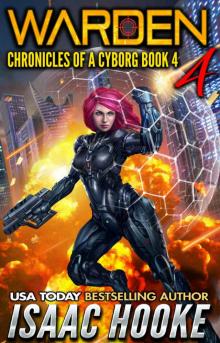 Warden 4
Warden 4 Emperor
Emperor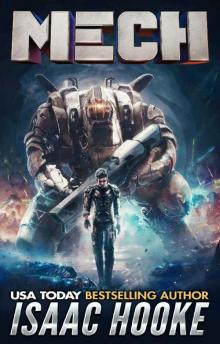 Mech
Mech Conqueror
Conqueror Fighter
Fighter The Forever Gate Ultimate Edition
The Forever Gate Ultimate Edition Defiler
Defiler Mech 2
Mech 2 Warden 3
Warden 3 Warden 1
Warden 1 Mech 3
Mech 3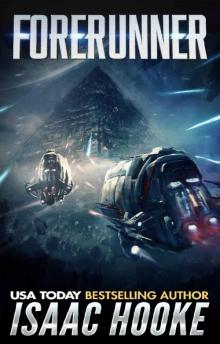 Forerunner
Forerunner The Alliance (AI Empire Book 2)
The Alliance (AI Empire Book 2) Breaker (Monster Tamer Book 1)
Breaker (Monster Tamer Book 1) Bender of Worlds
Bender of Worlds The Pendulum Swings (The Forever Gate Book 8)
The Pendulum Swings (The Forever Gate Book 8) The Link
The Link Just Another Day
Just Another Day Star Warrior
Star Warrior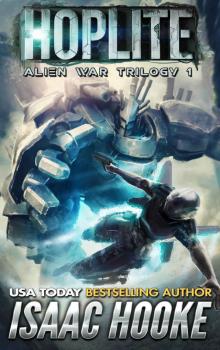 Alien War Trilogy 1: Hoplite
Alien War Trilogy 1: Hoplite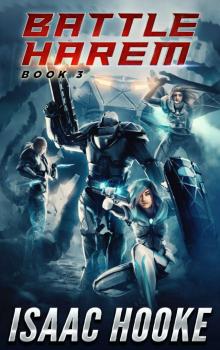 Battle Harem 3
Battle Harem 3 The Ethan Galaal Series: Books 1 - 3
The Ethan Galaal Series: Books 1 - 3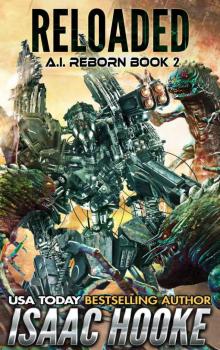 Reloaded
Reloaded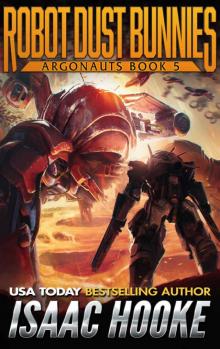 Robot Dust Bunnies (Argonauts Book 5)
Robot Dust Bunnies (Argonauts Book 5) Battle Harem
Battle Harem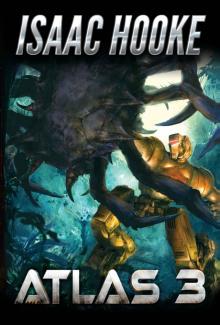 ATLAS 3 (ATLAS Series Book 3)
ATLAS 3 (ATLAS Series Book 3)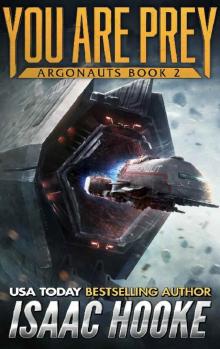 Argonauts 2: You Are Prey
Argonauts 2: You Are Prey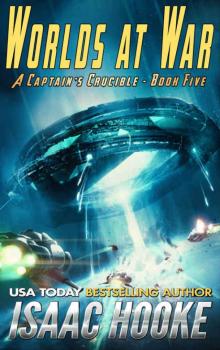 Worlds at War (A Captain's Crucible Book 5)
Worlds at War (A Captain's Crucible Book 5)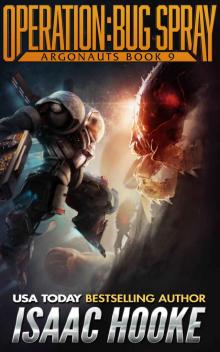 Operation: Bug Spray (Argonauts Book 9)
Operation: Bug Spray (Argonauts Book 9)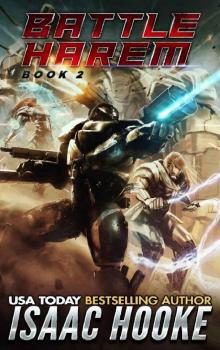 Battle Harem 2
Battle Harem 2 Redeemed (Bolt Eaters Trilogy Book 3)
Redeemed (Bolt Eaters Trilogy Book 3)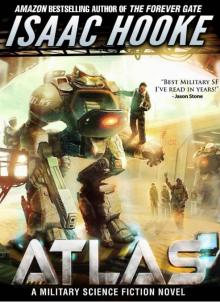 Atlas
Atlas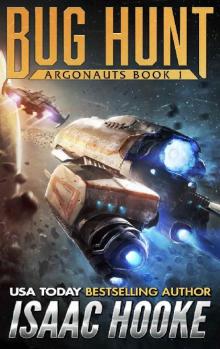 Argonauts 1: Bug Hunt
Argonauts 1: Bug Hunt Reactivated (Bolt Eaters Trilogy Book 1)
Reactivated (Bolt Eaters Trilogy Book 1)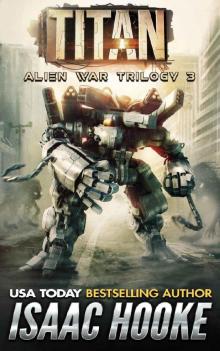 Alien War Trilogy 3: Titan
Alien War Trilogy 3: Titan Flagship (A Captain's Crucible #1)
Flagship (A Captain's Crucible #1)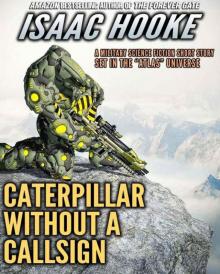 Caterpillar Without A Callsign
Caterpillar Without A Callsign The Forever Gate
The Forever Gate He Who Crosses Death (Star Warrior Quadrilogy Book 3)
He Who Crosses Death (Star Warrior Quadrilogy Book 3) Reforged (Bolt Eaters Trilogy Book 2)
Reforged (Bolt Eaters Trilogy Book 2) Refurbished
Refurbished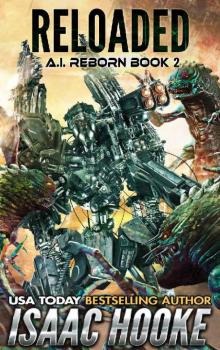 Reloaded (AI Reborn Trilogy Book 2)
Reloaded (AI Reborn Trilogy Book 2) He Who Crosses Death
He Who Crosses Death Explorations: First Contact
Explorations: First Contact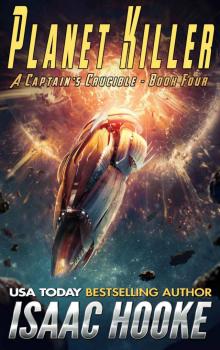 Planet Killer (A Captain's Crucible Book 4)
Planet Killer (A Captain's Crucible Book 4)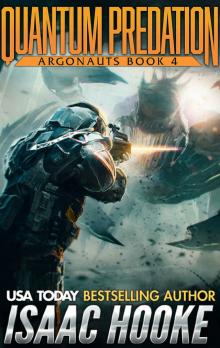 Quantum Predation (Argonauts Book 4)
Quantum Predation (Argonauts Book 4) Clandestine-IsaacHooke-FreeFollowup
Clandestine-IsaacHooke-FreeFollowup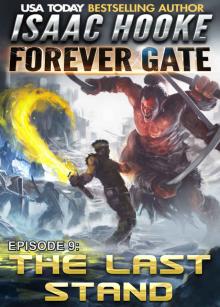 The Last Stand (The Forever Gate Book 9)
The Last Stand (The Forever Gate Book 9)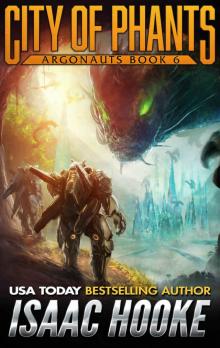 City of Phants (Argonauts Book 6)
City of Phants (Argonauts Book 6)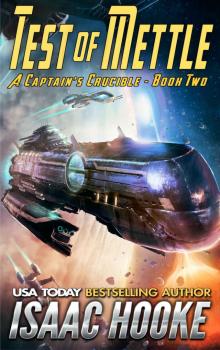 Test of Mettle (A Captain's Crucible Book 2)
Test of Mettle (A Captain's Crucible Book 2)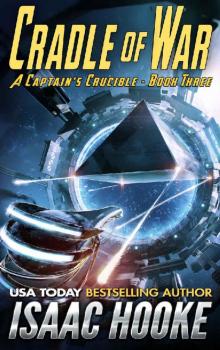 Cradle of War (A Captain's Crucible Book 3)
Cradle of War (A Captain's Crucible Book 3) Rade's Fury (Argonauts Book 7)
Rade's Fury (Argonauts Book 7) Rebirth (The Forever Gate Book 6)
Rebirth (The Forever Gate Book 6) The Forever Gate Compendium Edition
The Forever Gate Compendium Edition Mechs vs. Dinosaurs (Argonauts Book 8)
Mechs vs. Dinosaurs (Argonauts Book 8) Alien War Trilogy 2: Zeus
Alien War Trilogy 2: Zeus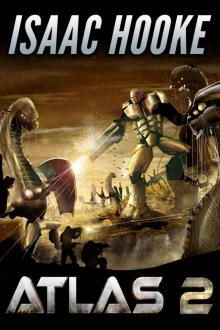 ATLAS 2 (ATLAS Series Book 2)
ATLAS 2 (ATLAS Series Book 2)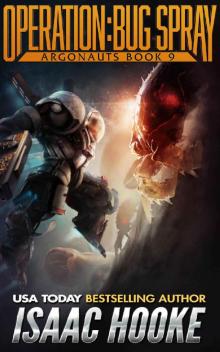 Operation_Bug Spray
Operation_Bug Spray